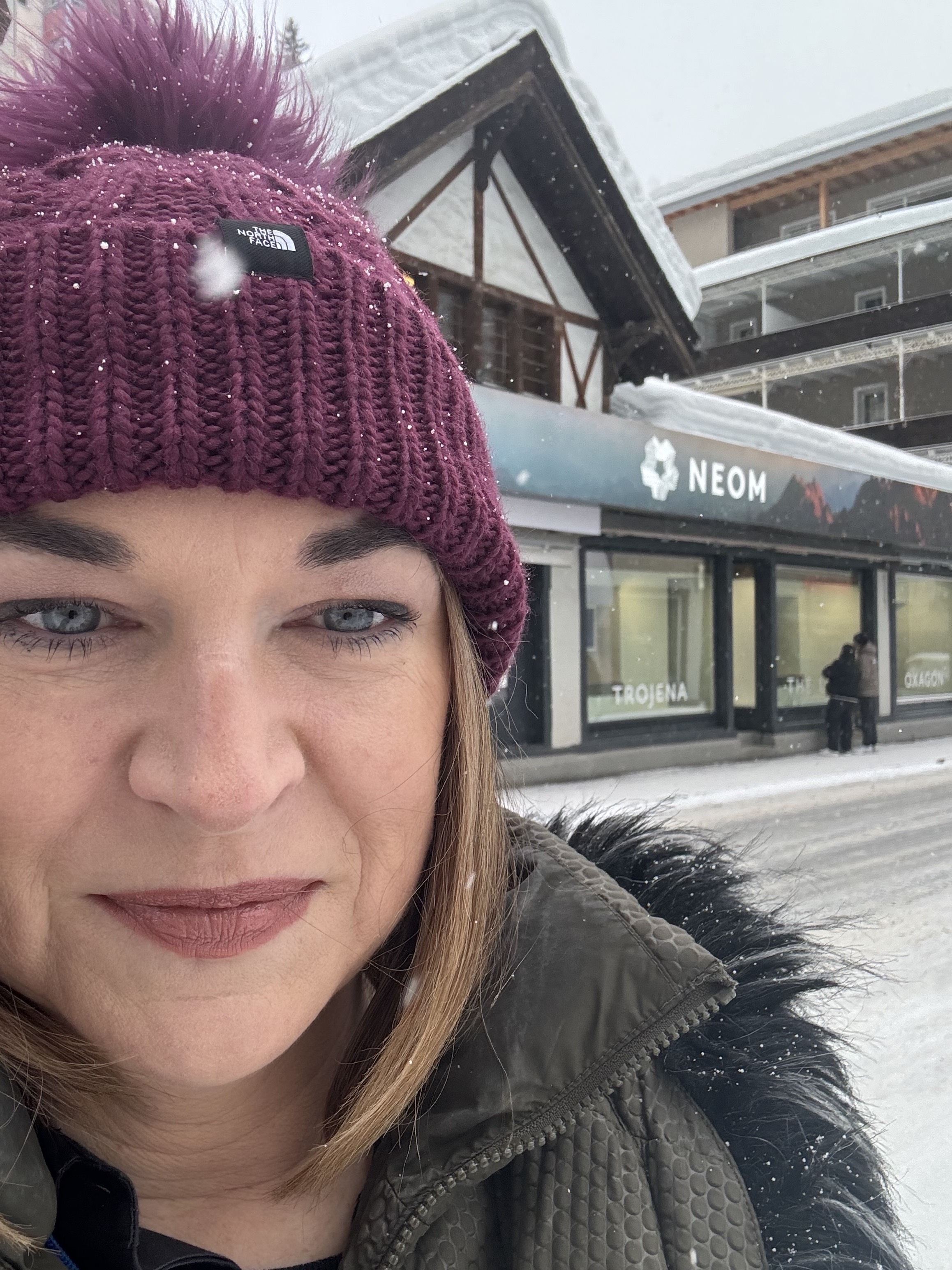Democracy @ Davos

A last-minute set of circumstances led me to be able to attend events on the sidelines of the World Economic Forum this year. I wanted to share some thoughts, but first a disclaimer: these are based on being in and around Davos for the past few days, but in the stratified system of the elite, I wasn’t even able to step foot in the Kongress Center where the main World Economic Forum takes place. Maybe next year.
#generativeAI is everywhere. Every meeting, every gathering point is all about the impact this will have. WEF’s Global Risk Report rated GenAI as a bigger threat to humanity than climate change or conflict. The perspective of not harming innovation with pesky regulations is the predominant view you hear over cocktails. It is astounding how far we have to go in breaking down the myth that prosperity and human rights must naturally be at odds. It defies the realities of economics, and yet here at the World Economic Forum, that’s the zeitgeist. My takeaway: to consider this properly as a #democracy issue, we must look beyond regulation and participation and include livelihoods, jobs, and other factors politicians must think about. More to come on that front.
Elections, Democracy, and Technology are the favorite topic of conversation…from what I’ve heard. Now, I got into the Davos game late, so I missed a lot of things and didn’t see many people I know here, but apparently, companies spent a lot of time talking about elections. That scares me. Not only have these companies literally stopped supporting the civil society groups they depend on for information, but they’re telling the world they’re prepared. Without talking to the people who will be impacted, and firing people with real expertise, this is simply not the case. Automating democracy is a frightening prospect, but it is in fact the trend.
NGOs are underrepresented and that has consequences. For governments and businesses, Davos is a major operation with houses and C-suites coming to the mountains for a week. Google literally rented an entire hotel. Civil society representation is sparse and that communicates that we’re not needed in conversations. When the theme this year is “rebuilding trust” it begs the question, with whom and for what? Davos is the social lubricant for public-private partnerships and offers the rare opportunity for masters of industry and global leaders to meet quietly and away from cameras. However, given that the multi-stakeholder system is what promises stability in the long term, the failure of both government and companies to include civil society in these conversations is a missed opportunity.
Women are driving conversations. I came here to be part of sessions put on by WPL and Apolitical which were great. I fully expected this would be the safe place for women to see each other in the vast sea of tech bros and old white men. I was pleasantly surprised. Female Quotient had an open door and some of the most compelling conversations on the Promenade with an emphasis on inclusion and underrepresented perspectives. In every room, women are dominating the conversations. Don’t get me wrong, Davos is not diverse or inclusive, but you can effectively put your foot in the door and change the conversation.
Who is “here” and who is not is notable. China sent its largest delegation in decades but wasn’t really “visible” on the street. India and Saudi Arabia line the Promenade with activations…and probably the closest I will ever get to Neom. Russia is persona non grata. What’s notable to me is that although public perception has made Russia and China socially taboo to Forum attendees, other brands of digital authoritarianism are perfectly acceptable business opportunities. My takeaway is that despite what the world’s elites like to tell themselves, activism works. The prominence of Ukraine House is a reminder of how important it is to keep up the pressure on human rights in business.
Value judgments on Davos abound. The communicator in me likes to move past that to the old axiom: you cannot influence a conversation you are not part of. Davos is a global convening of consequence. Participants come open to meeting new people and hearing different perspectives. Part of advocacy is speaking truth to power. For better or worse, this is power, and there are consequences for sitting it out. Certainly, the lift to get here, find a place to stay, and effectively navigate the space is hard for civil society but done correctly, it can be well worth the time. I would encourage more civil society groups to deploy your best networker who doesn’t require sleep and then work every connection you have to ensure they’re “in the room.”
A big thanks to friends who helped make this happen for me. Now off to find chocolate before the flight home!
